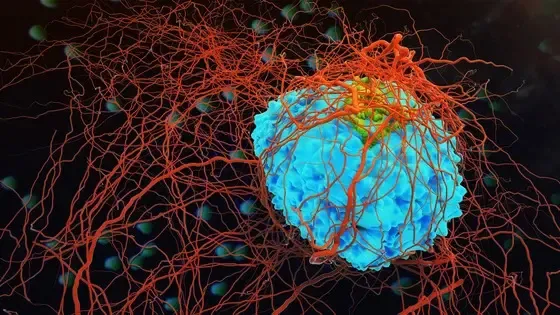Innovative Gene Test Identifies Blood Pathogens Without Amplification

Synopsis
Key Takeaways
- New CRISPR-based test detects pathogens quickly.
- No nucleic acid amplification needed.
- High sensitivity for multi-drug-resistant bacteria.
- Positive feedback loop enhances detection.
- Potential for rapid diagnostic tools.
New Delhi, March 16 (NationPress) A team of scientists has introduced a groundbreaking gene-based technology that facilitates swift and highly sensitive identification of multi-drug-resistant bacteria and various pathogens at minimal concentrations.
This study was highlighted in an article published in the Proceedings of the National Academy of Sciences of the United States of America (PNAS).
The researchers engineered a CRISPR-based test capable of quickly identifying low levels of pathogen genetic material in blood samples without requiring nucleic acid amplification.
Leading this project was Bioengineering Professor Rashid Bashir from the University of Illinois Grainger College of Engineering.
In standard CRISPR/Cas-based diagnostic tests, guide RNAs attach to pathogen DNA or RNA, prompting Cas enzymes to activate and cleave reporter nucleic acids that fluoresce upon cleavage. However, the typical CRISPR technique struggles to detect pathogens at low levels without an amplification step.
Bashir’s team devised a CRISPR-based diagnostic method that eliminates the need for amplification by integrating two CRISPR/Cas units into a complex known as CRISPR-Cascade.
One unit comprises a guide RNA tailored for a specific pathogen nucleic acid and a Cas protein. When the Cas cleaves specially formulated nucleic acids introduced into the system, segments of these nucleic acids can bind and activate a second CRISPR/Cas unit, initiating a positive feedback loop that yields a high signal-to-noise ratio.
The test exhibited unparalleled sensitivity, successfully detecting multi-drug-resistant Staphylococcus aureus DNA without prior amplification at concentrations significantly lower than those detected by tests utilizing a single Cas.
This test generated a straightforward “yes/no” outcome regarding the presence of any one pathogen in samples contaminated with four common bloodstream pathogens.
The researchers indicated that these findings could pave the way for the development of highly sensitive CRISPR-based diagnostic tools capable of detecting pathogens within minutes without the need for nucleic acid amplification.









